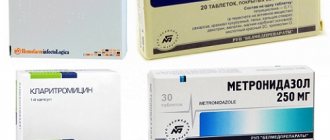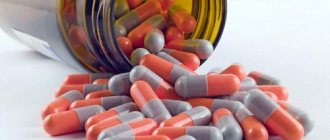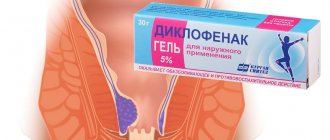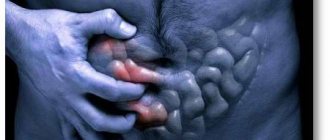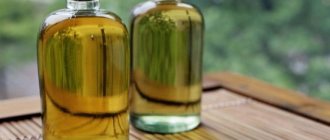Are antibiotics needed for hemorrhoids?
Antibiotics for hemorrhoids are an integral component of successful treatment. Due to illness, a person’s immunity can be seriously damaged, resulting in uncontrolled proliferation of microorganisms in the intestines - both ordinary representatives of microflora and pathogenic bacteria and viruses. The latter can get into damage to the mucous membrane and cracks in the rectum, which often occur with hemorrhoids.
Antibiotics are used as a means of preventing a number of complications, including such dangerous ones as sepsis or paraproctal fistula.
Hemorrhoids and antibiotics - treatment features
Hemorrhoids in most cases are treated conservatively. Systemic and local drugs are prescribed to relieve inflammation, hyperemia, pain, and improve blood flow in the vessels. In advanced forms, surgical intervention using minimally invasive or surgical methods cannot be avoided. To prevent serious complications, antibiotics are often used.
Antibiotics are a large group of drugs that effectively fight pathogenic microflora. They have a strong antibacterial effect, preventing the proliferation of bacteria and the spread of the infectious process. They are used in all areas of medicine, including proctology for the treatment of external and internal hemorrhoids.
Antibiotics are prescribed according to strict indications and only on the basis of thorough diagnosis.
Antibacterial treatment is necessary for the following conditions:
- frequent exacerbation of the disease with an inflammatory process in the rectum and intestines;
- erosions, cracks, wounds of the internal zone and perianal area;
- constant trauma to the mucous membrane with feces, which contain a large number of harmful microorganisms;
In order to prevent infection of affected intestinal tissues by bacteria, the use of antibiotics is indicated
- fistulas (openings) of the rectum with purulent contents;
- mechanical injury during proctological procedures;
- recovery after surgery to remove hemorrhoids;
- necrosis (death) of tissue due to impaired blood circulation;
- sepsis is infection of the entire body by microbes through the blood.
Read also
Diarrhea due to hemorrhoids - what should be done?
Antibiotics play a fairly important role in antihemorrhoidal therapy. They allow you to quickly stop the infectious process at the source of its occurrence, cleanse the pathological area of bacteria, and prevent the spread of pathogenic microflora to the entire rectum and neighboring organs. As a result, the acute phase of the disease recedes, the mucous membrane is restored, cracks and wounds heal, and tissues are quickly regenerated.
The inflammatory process of hemorrhoids is accompanied by painful symptoms. The mucous membrane swells, defecation becomes difficult, bloody discharge appears, body temperature rises, general malaise and severe discomfort in the anus are observed. Against this background, a purulent process may occur, and it is not far from serious complications - fistula and sepsis.
Treatment should not be neglected; if the doctor has prescribed antibiotics, they must be taken. Correct and timely conservative therapy is the key to a quick recovery without surgical intervention.
Which ones are better to choose?
Each patient is selected with his own set of antihemorrhoidal drugs. Some drugs have a quick effect, but have many contraindications. Others, on the contrary, are completely safe and hypoallergenic, but treatment with them may take an indefinite period or be ineffective. What drugs can be prescribed to a particular patient should be determined by the attending physician after a thorough examination and study of the patient’s medical record. You should not skimp on purchasing cheap or uncertified drugs: they can be made from chemical components that destroy the intestinal microflora and cause dysbacteriosis. Remember: by buying a low-quality drug, you save on your own health.
Pills
Antibiotics in tablets are the classic form of release of such drugs. Initially, when topical antibiotics did not yet exist, these drugs were widely distributed in many medical institutions. Unfortunately, tablets have too many side effects. They can negatively affect the liver, are slowly absorbed, and may have an effect on a completely different part of the body to which the patient is trying to treat. Many of them have now replaced ointments and rectal suppositories, which come into direct contact with the affected tissues and protect them from the negative effects of pathogens, from the market. However, tablet antibiotics are still used today as inexpensive but useful additions to the conservative treatment of hemorrhoids.
"Detralex"
Tablets that help improve venous circulation. Patients weakened by the disease should start with small portions of the drug and gradually increase its amount to achieve maximum effect. Patients whose hemorrhoids are still in the initial stages should immediately take large doses of the drug for a quick recovery. However, “high doses” should not be understood as reckless use of the drug in large quantities. Under no circumstances exceed the daily dosage specified in the instructions or prescribed by your doctor! The drug should not be used during pregnancy and is strictly prohibited during lactation - the chemical components of the drug can get into the milk and harm the baby’s health.
"Furazolidone"
Effective anti-hemorrhoid capsules. They have a bactericidal effect on pathogenic microorganisms that may be present in the human intestine. The course of treatment, on average, lasts from seven to ten days, and the daily dosage should be established by the attending physician. The drug has many contraindications, including pregnancy, lactation, allergies to drug components, renal or liver failure.
"Doxycycline"
An analogue of Furazolidone, which affects large groups of microorganisms and has fewer contraindications. You should take the tablets twice a day after breakfast and dinner, washing them down with plenty of water. The effect of taking the drug can appear after two hours in the form of slight dysbacteriosis. Don't be alarmed, this is normal. Pregnant and lactating women, as well as patients suffering from allergies, liver failure, porphyria or leukopenia, should not take the tablets.
What can be added to the treatment?
Phlebotonics - Phlebodia, Venarus, Detralex - do an excellent job of normalizing the functioning of affected veins. If heavy bleeding is observed with hemorrhoids, hemostatic medications in the form of tablets and suppositories can also be used. Severe attacks of pain can be relieved with analgesics or pain-relieving ointments and suppositories containing lidocaine, belladonna extract, benzocaine.
Once bacterial activity has been suppressed, tissue healing should be accelerated. In this case, you need special regenerating suppositories and ointments based on natural oils and vitamins. The composition of such products usually includes dexpanthenol.
The patient may be prescribed a course of antifungal agents, as well as immunostimulants and vitamin complexes that restore the body’s natural defenses.
In some cases, the doctor cannot prescribe antibiotics to the patient. They are prescribed with extreme caution for autoimmune diseases, fungal and viral infections, renal and liver failure, as well as individual allergic reactions. This is why it is so important that the treatment is carried out strictly by a specialist: self-prescription is very dangerous.
Hemorrhoids are a real problem for a modern person who can move around a lot, but mainly while sitting.
It affects office workers, athletes, drivers, etc. The main prevention is movement and proper nutrition. It costs very little, but with reasonable preventive actions you will get such an excellent result as purely theoretical knowledge about hemorrhoids.
Pricks and injections
Most injections for hemorrhoids are not antibiotics, but special topical preparations that are injected into the hemorrhoidal vein. The latter narrows and partially fuses, as a result of which blood stops flowing to the damaged tissues. After such injections, the hemorrhoid quickly dries out and dies, just as when using latex rings. Some drugs additionally include antibiotics.
"Gentamicin"
An antibiotic from the aminoglycoside group. It was originally used to prevent thrombosis of hemorrhoids, but later it was discovered to have good antibacterial properties. It affects most bacteria and, if used incorrectly, can disrupt the intestinal microflora. The main active ingredient of this drug is gentamicin sulfate. It inhibits protein synthesis, causing microorganisms to lose their ability to divide. Next, the human immune system comes into play and must get rid of the parasites. The drug is especially good because it can be used to treat hemorrhoids in people with diabetes and leukemia. However, these injections have a number of contraindications: pregnancy and lactation, uremia and impaired renal function, as well as auditory neuritis. Treatment is carried out within a week to ten days. Injections twice a day, 160 milligrams, should be given by an experienced healthcare professional. All treatment is carried out under the strict supervision of a doctor.
Chronic stage of internal hemorrhoids
In this situation, the patient will also have a choice, but Olestesin is most often prescribed. This is a well-known, effective composition, its active ingredients are sulfaethidol (this is an antibiotic), the anesthetic benzocaine, vitamin K and sea buckthorn oil. These suppositories are administered twice a day, one at a time, but in case of very severe pain, two suppositories can be administered at once. Before using a candle, the necessary hygiene procedures must be carried out.
But in addition to the local use of antibiotics, the doctor will probably prescribe auxiliary treatment. Sometimes, instead of local medications, the same antibiotics are prescribed in the form of injections or pills. For greater effect, two pharmaceutical products from the same group with identical active ingredients may be prescribed.
Ointments and suppositories
Antibiotics in the form of ointments and suppositories are perfect for people with digestive system disorders. Most drugs contain venotonic and wound-healing components necessary for the treatment of hemorrhoids. Often their use is accompanied by the use of special drugs that restore intestinal microflora. Before using any drug, you should consult your doctor.
"Levomekol"
Antibiotic produced in the form of ointments. Recognized as one of the most effective antihemorrhoidal drugs. It is often used to treat both external and internal hemorrhoids at all stages. It can be used both as a means to prepare the patient for surgery and for wound healing in the postoperative period. Chloramphenicol, which is part of the ointment, helps the body fight infection. It practically does not harm the microflora of the rectum and does not cause dysbacteriosis in the patient, but can seriously harm health in case of individual intolerance. Another important component of this ointment is methyluracil. It is he who is responsible for stopping hemorrhoidal bleeding and rapid wound healing. Unfortunately, this drug has a number of contraindications and is not recommended for use by children, pregnant and lactating women.
"Proctosedyl"
It is produced both in the form of ointments and in the form of rectal suppositories. Suppositories act a little slower than drugs in tubes, but their effect lasts longer. The main component of the drug that prevents intestinal infections is framycetin. This is a broad-spectrum antibiotic that has an effect on most pathogens and practically does not destroy the intestinal microflora. The effect of its use can be observed within a few minutes after application to the skin or insertion of a suppository. Additionally, the drug has an antipruritic effect. The antibiotic itself is hypoallergenic. It was not possible to identify any special contraindications; you should carefully study the medical record and the composition of the drug to avoid an allergic reaction.
"Gepatrombin G"
Another drug produced in the form of ointments and suppositories. It is most often used to treat acute hemorrhoids, but can also be used as a remedy against the chronic form of this disease. There are two courses of taking the drug - “regular” and “maximum”. The first is intended for long-term treatment of chronic hemorrhoids. The drug is used once a day, before bedtime. The second lasts no longer than two weeks. You can apply the ointment no more than four times a day, and suppositories are administered only twice. This drug contains three active ingredients.
Heparin - helps improve blood circulation in hemorrhoids, strengthens the walls of blood vessels and promotes the resorption of thrombosis, if it has already formed.
Prednisolone and polidocanol - have an analgesic and anti-inflammatory effect. In some cases, a freezing effect may be observed. Eliminate itching.
Conservative treatment of hemorrhoids with antibiotics
Both internal and external hemorrhoids are treated with a specific group of drugs. If you highlight the most common purposes, you will get a list of 6-8 items.
Among them will be:
- Penicillin;
- Monural (also popular in urology);
- Tetracycline (multipurpose drug);
- Azithromycin;
- Levomikol (sometimes has a weak effect);
- Proctosedyl (one of the most effective).
Penicillin
Monural
Tetracycline
Azithromycin
Levomikol
Proctosedyl
Ointments for hemorrhoids based on drugs from the syntomycin or framycytin groups have also proven themselves to be quite good. If the inflammation is large, then injections of Tetracycline or Penicillin are prescribed. Of the tablet forms, Monural and Azithromycin are considered the most effective.
The doctor decides which antibiotics to use for hemorrhoids. He prescribes a strict treatment regimen that cannot be changed or stopped. These actions often provoke complications or chronicity of the disease. If the drug is not suitable for the patient for some reason, only a specialist can replace it.
Another important point: when you take antibiotics, you do not stop taking other prescribed medications (that is, you practice parallel use). Most antibiotics combine well with anticoagulants, as well as painkillers and regenerating compounds.
Antibiotics for hemorrhoids with fever
Antibiotics are often prescribed to patients whose disease is accompanied by high fever and pus discharge from the anus. If at least one of these signs is detected, you should immediately do a general blood test to check for an increase in the erythrocyte sedimentation rate. Most often, similar symptoms are accompanied by ordinary suppuration of hemorrhoids, for the treatment of which it is enough to take antibiotics, however, in case of thrombosis, and even worse - necrosis, appropriate drugs of other categories should be immediately prescribed.
The most common cause of elevated temperature is inflammatory processes. The easiest way to reduce the temperature of hemorrhoids is to use special rectal suppositories.
"Voltaren"
These suppositories should not be used for long-term treatment of hemorrhoids; they are intended only to reduce pain and reduce the patient’s temperature during an exacerbation. This effect is achieved thanks to diclofenac, which is part of these suppositories. This is a very active substance and its effect can appear within five minutes after administration of the suppository. Additionally, these suppositories can protect hemorrhoids from infection by pathogens.
Ichthyol candles
A good analogue of suppositories with diclofenac, based exclusively on natural ingredients. They have virtually no contraindications, except for individual intolerance, and can be used by both children and elderly people. These suppositories can be used by women during pregnancy or lactation. They have an antibacterial effect, relieve inflammation and reduce temperature.
Candles with adrenaline
It is almost impossible to buy these drugs in a pharmacy; they are usually prepared by a pharmacist according to the individual requirements of the patient. A doctor must write a prescription for these suppositories. Suppositories with adrenaline should be used if chronic hemorrhoids are accompanied by a constant fever. They are usually combined with vascular tonic suppositories - one suppository with adrenaline for two venotonics. These drugs quickly relieve inflammation and reduce the size of hemorrhoids. They also stimulate the immune system to fight harmful bacteria.
The role of antibiotics
With the help of antibiotics, pathogenic microorganisms that cause the development of infection are suppressed. Inflammatory processes lead to exacerbation of hemorrhoids, as well as to thinning of the wall of the mucous membrane.
In the event of a severe exacerbation of the disease, taking antibacterial medications is simply necessary, since microbes, through cracks formed in the mucous membrane, can enter directly into the blood and cause sepsis.
Antibiotics are important in cases where hemorrhoids are accompanied by characteristic diseases of the rectum, for example, proctitis, in which inflammation of the mucous membrane occurs. This disease manifests itself through very unpleasant symptoms such as pain, burning and purulent discharge. Antibacterial agents will not only relieve the inflammatory process, but also reduce pain, simultaneously reducing thrombosis of the node.
Treatment of hemorrhoids with antibiotics is indicated in the following cases:
- significant suppuration, which is determined by a doctor;
- changes in the hemorrhoidal node towards the formation of its necrosis.
If you do not start taking medications with an antimicrobial effect on time, inflammation may increase and the amount of pus may increase. Suppuration in the cavity and on the walls of the intestinal mucosa is very difficult for a person to bear and causes a lot of discomfort. In addition to painful sensations during bowel movements, hemorrhoidal cones may become enlarged. Advanced formation of pus, in turn, leads to the formation of sepsis or fistula. Both phenomena are accompanied by high temperature and also pose a danger to life.
There are several forms of antibacterial drugs that are used to eliminate exacerbation of hemorrhoids:
- injections;
- pills;
- candles;
- ointments.
Features of use for internal and external hemorrhoids
Rectal suppositories are better suited for the treatment of internal hemorrhoids, since they quickly reach the affected tissues and have an effect on them for a long time. For external hemorrhoids, ointments are more suitable - they are easier and less painful to apply. Tablets and injections can be used during the treatment of both the first and second types of disease. The use of suppositories for external hemorrhoids or ointments for internal hemorrhoids is ineffective in most cases - the drug may not reach the affected tissues.
Contraindications
Taking antibiotics for hemorrhoids is contraindicated if:
- individual intolerance to components;
- dysbacteriosis;
- sensitization of the body;
- severe impairment of liver and kidney function.
Hemorrhoids after antibiotics can give adverse reactions in the form of:
- resistance to therapy;
- candidiasis;
- persistent thinning of the mucosa with the risk of permanent injury from feces during defecation.
In addition, common side effects are possible:
- nausea;
- vertigo;
- diarrhea;
- arthralgia;
- Quincke's edema;
- insomnia or drowsiness.
Prevention of inflammatory processes in the intestines
Hemorrhoids in the vast majority of cases are accompanied by various types of inflammatory processes in the rectum. They can arise both from enlargement of hemorrhoids and from constipation, which often occurs with this type of disease. And, at the moment, the most reliable way to avoid illness is prevention.
In order to avoid getting hemorrhoids, it is not at all necessary to take pills, antibiotics or herbal decoctions. It is enough to follow a few simple tips that are recommended by all proctologists in the world.
- Firstly: balance your diet , make it rational. Healthy food will not only prevent the enlargement of hemorrhoids, but can also provide invaluable benefits in the early stages of the disease. You should exclude foods that disrupt intestinal function from your diet and add as many fresh vegetables and fruits as possible. Try to cook yourself, do not buy fast food. Do not drink alcoholic beverages, because they affect both the entire body and, first of all, the digestive system. Some people think that only drinks such as cognac, wine, vodka can cause harm, but no: even low-alcohol beer can cause irreparable harm to a person with hemorrhoids. You should also avoid various types of sausages, both hard smoked and raw smoked. They can create congestion in the pelvic area, which in turn will lead to irritation of the intestinal mucosa and inflammation. You should also minimize the consumption of tomatoes and cucumbers canned for the winter. Various kinds of pickles, pickled and spicy dishes can irritate the intestines weakened by disease. Include fresh or at least frozen vegetables and fruits in your diet. Eat fermented milk products every day, especially kefir and acidophilus.
- Secondly: drink at least two liters of fresh filtered water daily . This is necessary in order to avoid dehydration of the body and to soften fecal formations in the intestines.
- Third: move more. No matter how trite it sounds, movement is really life. The most common cause of hemorrhoids is a sedentary, sedentary lifestyle. The fact is that while sitting, blood rushes to the vessels of the small pelvis, as a result of which the pressure in the hemorrhoidal veins increases. Gradually increasing, it can damage the walls of blood vessels and, as a result, protrusion of hemorrhoids occurs. Walk more in the fresh air, do exercises in the morning. If you have a sedentary job, then take breaks about every half hour. It will be better if you devote your free time to light physical exercise. People who do not have the opportunity to leave their workplace, for example, drivers, can simply alternately tense and relax their buttocks. After work, go to the pool or gym. However, you should not be too zealous and engage in excessive sports, such as weightlifting. When lifting heavy weights, the pressure in the pelvic area can increase to extremely high levels, increasing the risk of hemorrhoids. As a preventative measure, special anti-hemorrhoid ring pillows should be used, which, due to the specificity of their shape, facilitate blood circulation in the pelvic area.
- Fourth: observe all rules of personal hygiene . Wash your hands thoroughly with soap before and after eating, shower daily, take a bath at least once a week, and rinse the area around the anus with cold water after each bowel movement. Do not use too hard and thick toilet paper; choose expensive multi-layer varieties. If you are predisposed to hemorrhoids, take baths with manganese or sea salt every evening - these substances improve blood circulation and help thin the clots that form in the hemorrhoids.
- And fifthly: do not use too much force when defecating , so as not to cause rectal bleeding. Residents of rural areas should be sure to equip a toilet in the house, since in winter the risk of poor circulation in the anus due to hypothermia increases. Be sure to wash yourself after each bowel movement. This is not only pleasant, but also very useful.
By following these basic rules, you will never get inflammation of hemorrhoids and will be healthy.
Reviews
You can leave your reviews and results of using antibiotics in the treatment of hemorrhoids in the comments below, they will be useful to other users!
Mikhail, Orenburg
“When my hemorrhoids flare up, the first thing I do is plunge into ice water for just a few seconds to get rid of the pain, and then begin treatment. I have a proven product - Levomekol ointment. I don’t spread it (they say it’s ineffective), but squeeze it onto a boiled cotton cloth folded eight times, apply it to the inflamed hemorrhoids and immediately go to bed. Overnight, the ointment has time to be completely absorbed, and the nodes become noticeably softer and more pliable. I’m undergoing treatment for about ten days, depending on how I feel. During this time, the nodes return to an acceptable state and then do not become inflamed for a long time.”
Yaroslav, Tver
“A colleague recommended Proctosedyl suppositories to me and since then I have always kept them in the refrigerator as an emergency remedy in case of exacerbation of hemorrhoids. However, they are expensive: about 500 rubles. But I have never come across a better remedy for pain. Not so long ago, this illness grabbed me, right in the toilet, so much so that I could barely crawl to the bed. I fell on my stomach, I can’t get up, I’m just dying. He lay down for a while, somehow got up and crawled for the candles. They work almost immediately: a minute or two - and you can walk normally again. It’s a little unpleasant, of course, but it can’t be compared with what happened. The only thing is that by the time you insert the candle for the first time, you will say goodbye to life ten times, such pain. After that, I bought an ointment with exactly the same name and began to relieve the pain only with it, and only then use suppositories. The ointment acts even faster, but also does not last long. Therefore, I decided to use both options for myself.”


